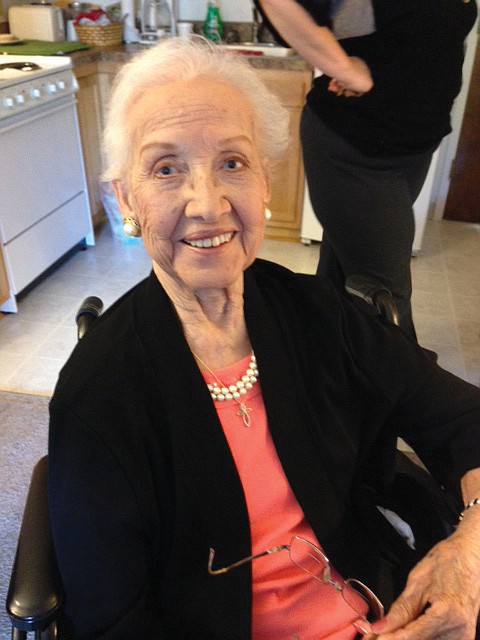Remarkable 'Hidden Figures' to receive Congressional Gold Medal
Stacy M. Brown/NNPA Newswire Correspondent | 11/15/2019, 6 a.m.
Katherine Johnson of Newport News, one of the African-American women whose groundbreaking NASA work received global attention in the best-selling book and blockbuster movie, “Hidden Figures,” will receive a Congressional Gold Medal thanks to a bipartisan bill passed by Congress in October and signed into law Nov. 8 by President Trump.
All four of the heroines depicted in “Hidden Figures” will receive recognition. In addition to Mrs. Johnson, Dr. Christine Darden, Dorothy Vaughn and Mary Jackson also will receive medals. Ms. Vaughn’s and Ms. Jackson’s medals will be presented posthumously.
The book, “Hidden Figures: The American Dream and the Untold Story of the Black Women Mathematicians Who Helped Win the Space Race,” by Margot Lee Shetterly, helped tell the women’s story.
“Katherine Johnson, Dorothy Vaughan, Mary Jackson, and Dr. Christine Darden made monumental contributions to science and our nation,” said U.S. Sen. Kamala Harris of California, a contender for the Democratic presidential nomination, said in a statement.
Sen. Harris and five other members of Congress, including Sens. Mark R. Warner and Tim Kaine of Virginia, introduced legislation to secure Congressional Gold Medals for Mrs. Johnson and her col- leagues.
“The groundbreaking accomplishments of these four women and all of the women who contributed to the success of NASA helped us win the space race but remained in the dark far too long,” Sen. Harris stated.
“I am proud our bill to honor these remarkable women has passed Congress. These pioneers remain a beacon for Black women across the country, both young and old.”
The honor isn’t the only one for Mrs. Johnson, a mathematician who was instrumental in astronaut Alan Shepard’s successful 1961 journey to space. She also played a pivotal role in John Glenn becoming the first American to successfully orbit Earth one year after Mr. Shepard’s flight.
Corporate Office Properties Trust agreed in October to rename its 7000 Columbia Gateway Drive building in Columbia, Md., the Katherine G. Johnson Building.
A plaque will be placed at DreamPort’s 7000 Columbia Gateway Drive entrance commemorating the naming of the building in honor of Mrs. Johnson and her legendary accomplishments as a NASA mathematician and her essential role in the space program, according to a news release.
Mrs. Johnson, who turned 101 in August, is the recipient of numerous honors, including the Presidential Medal of Freedom awarded by former President Obama, multiple NASA Langley Research Center Special Achievement awards and many others, including buildings, schools and libraries named after her.
In an earlier interview, Mrs. Johnson said that she missed working.
“I’d go back now,” she said.
After leaving her teaching job in 1953, Mrs. Johnson began working for NASA and calculated the trajectory for numerous space missions, including for the space flight of Alan Shepard, the first American in space, and the path for the famed 1968 Apollo 11 flight to the Moon.
“I’d do them over if I had to. I’d do anything for anyone,” Mrs. Johnson stated.
At an early age, Mrs. Johnson developed enviable math skills so much so that even NASA officials wrote a story about her titled, “The girl who loved to count.”
“I counted everything. I counted the steps to the road, the steps up to the church, the number of dishes and silverware I washed, anything that could be counted, I did,” Mrs. Johnson said.
“I entered college; I was 15. I was going to be a math teacher because that was it. You could be a math teacher or a nurse,
but I was told I would make a good research mathematician and they had me take all of the courses in the catalog,” she stated.
When Mr. Glenn was the first American to orbit the Earth in 1962, Mrs. Johnson said her “Hidden Figures” crew acted as the computer for the mis- sion. Calculating everything involved in the flight became like a geometry problem, Mrs. Johnson recalled.
“I felt most proud of the success of the Apollo mission (that landed on the moon for the first time 50 years ago in July 1969.) We had to determine so much — where you were, where the moon would be and how fast the astronauts were going,” Mrs. Johnson stated. “We were really concerned, but the astronaut had to do it just as we laid it out. I was looking at the television and hoping that we’re right.”







